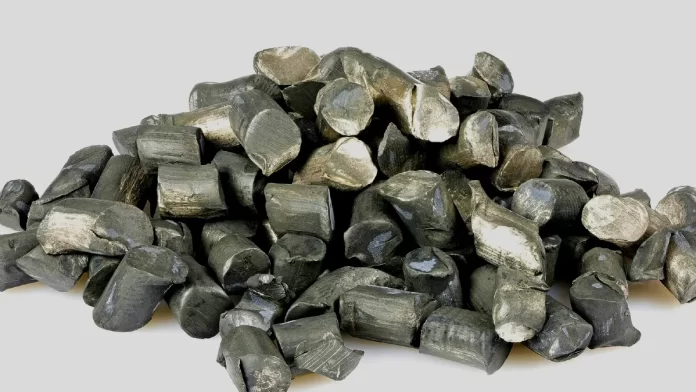
Parliament’s majority has justified the decision to maintain a 5 percent royalty rate for Ghana’s lithium deal, asserting that charging the previously proposed 10 percent would violate existing mining legislation.
Collins Dauda, Chairman of the Lands and Natural Resources Committee, explained that although many Ghanaians believe Parliament rejected the 10 percent royalty proposed under the previous administration, the situation is more complex and rooted in legal constraints. He emphasized that Ghana is currently bound by the Minerals and Mining Amendment Act, 2010 (Act 794), which sets the royalty rate at 5 percent for all mineral producers across the country.
Under the previous administration, the agreement between Ghana and Atlantic Lithium charged 10 percent royalty. However, the deal was never ratified by Parliament until the change in government occurred. Given the slump in global lithium prices since the agreement was signed in October 2023, the company is now seeking revised terms under the current administration.
A new agreement presented to the House by Emmanuel Armah Kofi Buah, Minister for Lands and Natural Resources, reduces the royalty rate from 10 percent to 5 percent. This decision has drawn criticism from experts in the industry who argue the rate is insufficient given lithium’s strategic importance for electric vehicles and green technology.
Dauda stated that established mining companies in Ghana, including Newmont, Gold Fields and AngloGold, continue paying 5 percent royalties. He argued that charging Atlantic Lithium 10 percent while others pay 5 percent creates unfairness and, more importantly, does not align with existing law requiring Parliament to amend legislation before imposing higher rates.
The Committee Chairman clarified a public misconception that the previous minority in the last Parliament opposed the 10 percent rate. He explained that when the former administration presented its lithium agreement proposing a 10 percent royalty, the Minority at the time, now the Majority, raised two major concerns about the proposal.
First, the 10 percent contradicted existing law capping royalties at 5 percent. Second, it was discriminatory because it would give Barari DV Ghana Ltd, Atlantic Lithium’s local subsidiary, a royalty structure higher than what other mining firms were paying. These issues led the Committee to advise the Minister to revise the agreement and seek a legal amendment.
Because this revision never happened, the Committee’s report was never submitted to the House for debate or ratification. Dauda stated that claims the minority rejected 10 percent are misleading and inaccurate because no report was presented to the House for members to debate, ratify or reject.
The new administration’s agreement with Barari DV Ghana Ltd takes a different approach. Instead of specifying a percentage, the contract now states that royalty will be paid as prescribed by law. Since the law prescribes 5 percent rather than 10 percent, even if the government wants a higher rate, its authority is limited until Parliament amends the Minerals and Mining Act.
Dauda emphasized that whether policymakers prefer 10 percent or more, the law must change before any company can be bound to pay higher rates. He stressed that royalty rates must come from legislation rather than sentiment or public preference, regardless of citizen expectations about maximizing revenue from strategic minerals.
Lithium is expected to be one of Ghana’s most strategic minerals in the next decade. With global demand soaring, driven by electric vehicles and green technology adoption, many citizens believe Ghana must negotiate aggressively to avoid repeating mistakes made in the gold sector, where some argue royalty rates have been too low for decades.
The Majority insists that any attempt to impose a 10 percent rate now would risk legal challenges, undermine Ghana’s regulatory consistency and potentially deter investors who rely on predictable legislative frameworks. This position reflects concern that retroactively changing terms for specific companies could damage Ghana’s reputation in international mining investment circles.
The controversy highlights tensions between public expectations for higher mineral revenues and legal constraints governing resource extraction agreements. While activists and industry watchers argue that even 10 percent royalties would be insufficient given lithium’s strategic value, Parliament maintains that legal processes must be followed to change royalty structures.
The debate occurs as Ghana positions itself to benefit from the global energy transition, with lithium serving as a critical component in battery production for electric vehicles and renewable energy storage systems. The country’s ability to balance investor confidence with revenue maximization will likely shape its success in developing its lithium sector over the coming years.
